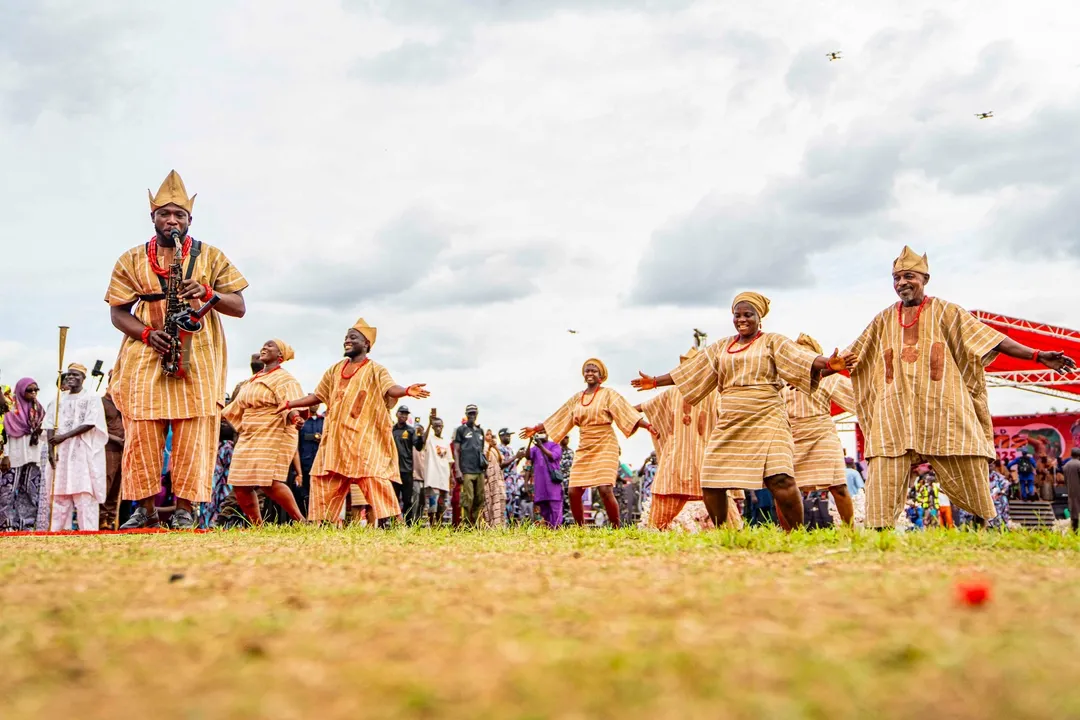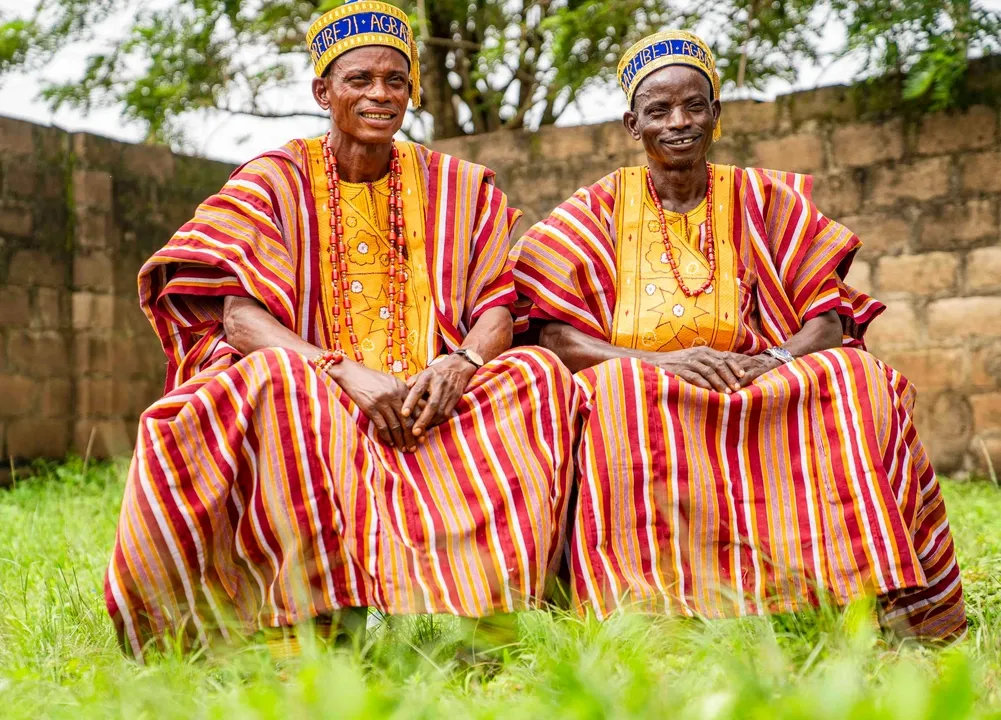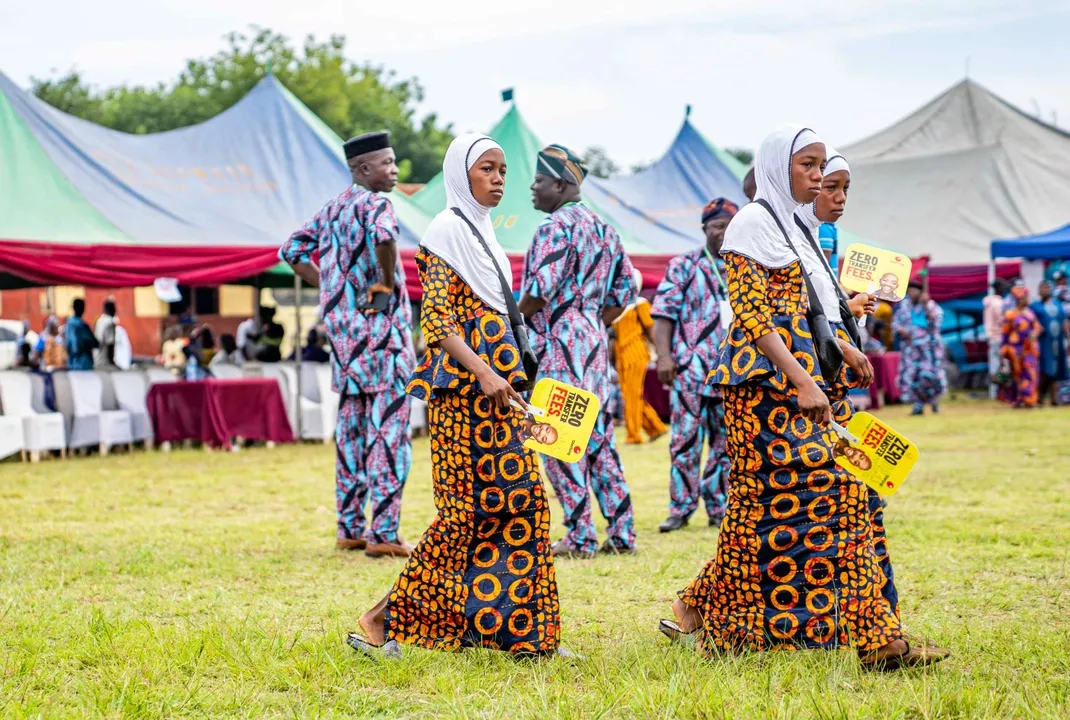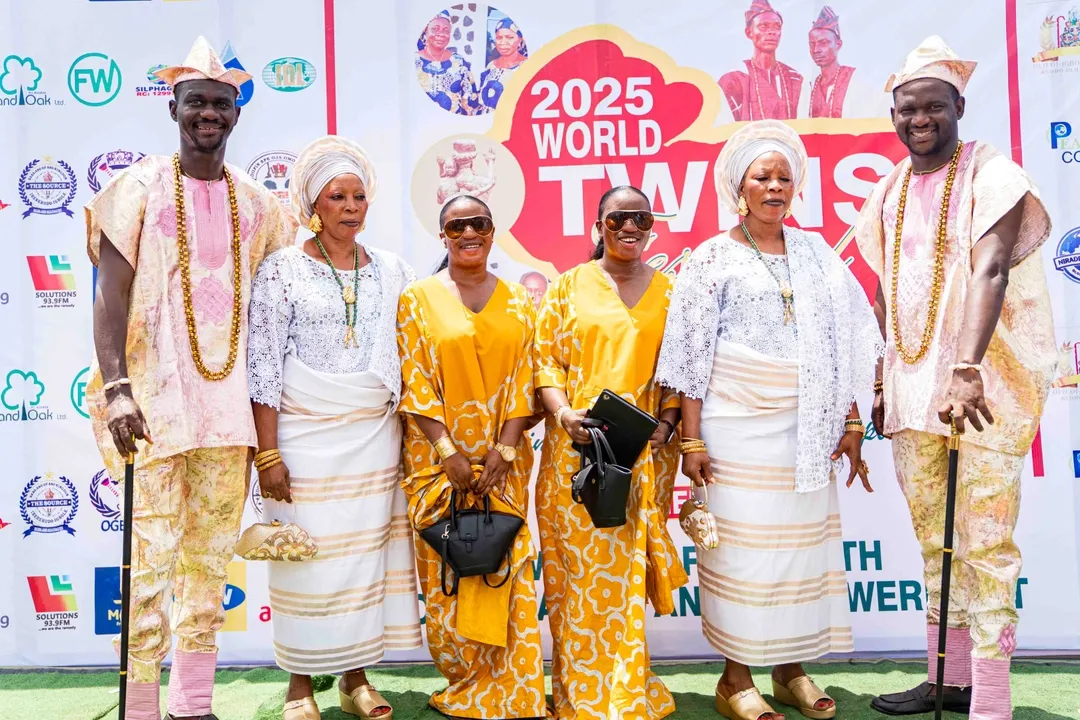Sport
The Igbo-Ora Twins Festival is the largest annual gathering of twins in Nigeria, which celebrates identity, heritage, and the extraordinary gift of biological twinhood.
The ancient town of Igbo-Ora in Oyo State, southwest Nigeria, over the weekend, transformed into a dazzling spectacle of rhythm, colour, and connection as hundreds of twins, their families, and visitors gathered for the Igbo-Ora Twins Festival—the largest annual gathering of twins in the West African nation, which celebrates identity, heritage, and the extraordinary gift of biological twinhood.

From toddlers giggling in matching dresses to elderly twins in identical agbadas, the atmosphere brimmed with identical smiles and synchronised laughter. The streets pulsed with drumming, dancing, and cultural parades, while cameras clicked incessantly, trying to capture the surreal sight of near-perfect duplicates moving in harmony.
Celebration of culture
Launched in 2018 through a partnership between the Igbo-Ora community and the Oyo State Government, the festival originated as a tourism initiative to showcase the town’s unique phenomenon of twin births.

Today, it has grown into one of Nigeria’s most distinctive cultural gatherings — a blend of entertainment, education, and heritage preservation.
This year’s edition, themed “Twinning for Youths Reorientation and Empowerment,” drew twins from across Nigeria and the diaspora. The town’s main streets came alive with masquerades and traditional performers dancing in rhythmic synchronicity, as if echoing the very essence of twinhood.
The twin football match — where identical players faced off against each other — and a twin-themed academic contest added extra layers of excitement.
Why does Igbo-Ora have so many twins?
Igbo-Ora’s popularity and self-styled name “Twin Capital of the World” is backed by researchers.
Scientific studies by researchers from the Universities of Benin and Ibadan, published in the US National Library of Medicine, show the town’s remarkable twin birth rate — around 45 per 1,000 births, compared to the global average of 12. Local estimates suggest that certain families may have as many as 158 twins per 1,000 births.

For long, a myth from locals has been that it is the local diet, “ila”, a soup made from okra leaves and yams, that is believed to enhance fertility and influence twin births in the community.
But researchers dispute that theory and have pivoted towards genetics, which they believe has been strengthened by generations of endogamy, the practice of marrying within the community, which may have concentrated twin-related genes in the town.
Twins in Yoruba cosmology
Among the Yoruba people, twins (known as ibeji) occupy a sacred place. They are seen as bearers of fertility, prosperity, and divine protection.

Names of twins carry deep symbolic meaning: the firstborn is Taiwo — “the one who tastes the world” — while the second, Kehinde, is “the one who comes after”, believed to be the elder spirit who sent Taiwo ahead. This philosophy reflects a worldview where birth order is less about time and more about destiny.
This year’s edition had hotels and guesthouses fill up weeks in advance; artisans could be seen selling twin-inspired crafts; and food vendors delighted guests with so-called “twin diets”, serving visitors, researchers, and journalists from around the world who flocked to the town, drawn by its mix of science, spirituality, and celebration.
Comments
No comments Yet
















Comment